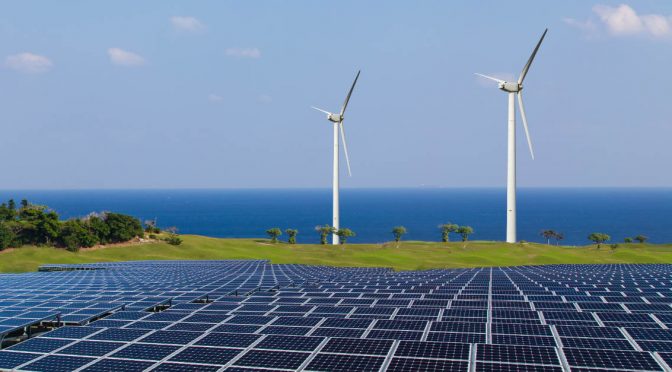In addition to its key role in the decarbonization of the global electricity sector, wind power, solar thermal and photovoltaic would also help reduce its water consumption by up to 97%.
This is the result of a study conducted by a team of researchers from the Technological University of Lappeenranta in Finland and published in the journal Nature Energy.
According to the study, to produce the same energy of 1 megawatt hour (MWh), photovoltaic technology consumes between 2% and 15% of the water used by nuclear and coal plants.
Wind turbines, in turn, consume between 0.1% and 14% of that same amount.
According to the researchers, this insignificant demand for water represents a double gain for renewable technologies, which already have almost zero CO2 emissions in the generation.
For the study, the team collected data from 13,863 thermoelectric plants with more than 50 megawatts (MW) capacity, which together totaled more than 4.1 gigawatts (GW).
This represents more than 95% of the world’s thermal generation, the researchers said, who used this information to draw projections of water consumption in the global electricity sector within the 2015-2050 period.
If the best political scenario were adopted, the study establishes that water consumption in world electricity generation could be reduced by 75.1% by 2030 from 2015 levels.
By 2050, this could be as high as 97.7%, but it requires that many fossil and nuclear combustion thermoelectric plants be deactivated and replaced by clean generation sources.
However, the study reveals that natural gas will continue to grow in regions such as China, South Korea and Russia, where water consumption is expected to remain large.
In 2015, the United States was the largest consumer of conventional power generation water, with a world share of 35.7%, followed by China with 31.5%.
The researchers conclude that water saved from renewable sources could be used for food production or the cultivation of aquatic ecosystems.

